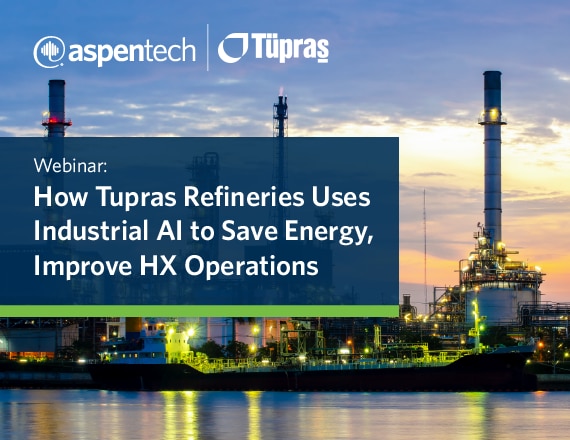
How Tupras Refineries Uses Industrial AI to Save Energy, Improve HX Operations
Efficient heat exchanger (HX) operations is critical for plants to improve energy efficiency and meet sustainability goals. Lack of visibility into the fouling levels of HX units and the inability to predict future fouling levels are major challenges while scheduling maintenance work. Although rigorous process modeling can give insights to current fouling levels, prediction of future fouling levels has been difficult.
In this on-demand webinar, experts from the Turkish Petroleum Refineries (Tupras) share how rigorous process simulation (Aspen HYSYS®) combined with Industrial AI-powered Aspen Hybrid Models™ enables them to quickly build accurate digital twins of heat exchanger units. Learn how these innovations help them:
- Gain accurate insights into the fouling levels of HX units and predict future fouling levels
- Discover other key factors that contribute to fouling
- Streamline workflows for maintaining digital twins
- Quickly take advantage of AI technology without requiring any expertise in data science
- Model unique HX units that could not be simulated before
Discover how you can use Industrial AI to save energy and improve HX operations.
